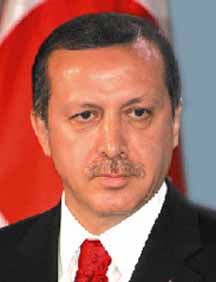AMMAN, (Reuters) – Syria’s army pounded the rebel city of Homs as Turkey sought international action to protect civilians from former ally President Bashar al-Assad, a move that risks the wrath of Russia and China.

Scores were killed in Homs yesterday, according to the opposition, drawing comparison with the plight of the city of Benghazi which triggered Western attacks on Libya last year and accelerating a global diplomatic showdown whose outcome is far from clear.
“I’ve seen whole families killed this week,” an activist called Ahmed told Reuters from Homs, the scene of one of the bloodiest government onslaughts in the 11-month-old revolt against Assad. “Now I feel like I’m just waiting to be the next to die,” added the accountant aged 28.
Turkish Foreign Minister Ahmet Davutoglu told Reuters before flying to Washington for talks on Syria that Turkey, which once saw Assad as a valuable ally but now wants him out, could no longer stand and watch and wanted to host an international meeting to agree ways to end the killing and provide aid.
“It is not enough being an observer,” he said. “It is time now to send a strong message to the Syrian people that we are with them,” he added, while refusing to be drawn on what kind of action Turkey or its allies would be prepared to consider.
Syrian army tanks and artillery pounded areas of Homs where revolt had flourished, demolishing buildings where people were living, short of water, food and medical supplies and pinned down by sharpshooters on rooftops.
Syrian state media blamed foreign-backed “terrorists” for killing 30 security personnel on Tuesday and causing an explosion that set a refinery ablaze.
Syria’s position at the heart of the Middle East, allied to Iran and home to a powder-keg religious and ethnic mix, means Assad’s opponents have strenuously ruled out the kind of military action they took against Libyan leader Muammar Gaddafi.
RUSSIAN WRATH
Russia and China, which let the United Nations support the air campaign in Libya, provoked strong condemnation from the United States, European powers and Arab governments when they vetoed a much less interventionist resolution in the Security Council last week that called on Assad to step down.
Moscow sees Assad as a buyer of arms and host to a Soviet-era naval base. For both Russia and China, Syria is also a test case for efforts to resist U.N. encroachment on sovereign governments’ freedom to deal with rebels as they see fit.
Campaigning for next month’s presidential election that he is certain to win, Prime Minister Vladimir Putin, who first won the presidency after storming the rebel Russian city of Grozny, said: “A cult of violence has been coming to the fore in international affairs … This cannot fail to cause concern.
“We of course condemn all violence regardless of its source, but one cannot act like an elephant in a china shop.
“Help them, advise them, limit, for instance, their ability to use weapons but not interfere under any circumstances.”
It is unclear what Turkey, a NATO member and rising Muslim, democratic force in the Middle East, could do to bring Moscow into any international initiative alongside those regional and world powers which have sided with the rebels against Assad.
Turkish Prime Minister Tayyip Erdogan, who had described the Russian and Chinese veto at the U.N. as a “fiasco”, telephoned outgoing Russian President Dmitry Medvedev on Wednesday.
The Kremlin said Medvedev told Erdogan that the search for a solution should continue, including in the Security Council, but that foreign interference was not an option.
Medvedev also spoke with French President Nicolas Sarkozy asking him and other Western countries to avoid “hasty, unilateral moves” towards Syria, the Kremlin said.
Officials in Washington said they hoped to meet soon with international partners to consider how to halt Syria’s violence and provide humanitarian aid.
As the diplomatic gears turned, the military offensive in Homs and elsewhere showed no sign of let up. Activists in the city also accused militiamen of slaughtering three families in their homes – the sort of incident that is fueling fears of a descent into more widespread, Iraq-style sectarian killing.
The day’s death toll stood at over 100, activists said, a figure that could not be independently verified.
“PEOPLE UNDER RUBBLE”
Speaking by satellite phone from the beleaguered Bab Amro neighbourhood, activist Hussein Nader said the bombardment had lessened on the district by dusk but tanks had moved closer to the besieged district, where 30,000 inhabitants have been without water, electric or telephone lines days.
“Dozens of people are under the rubble with no way to get to them because they are firing at anyone who moves in the street,” he said.
Asked about resistance in the district, Nader said the Free Syrian Army was outgunned and that fighters were laying low, awaiting an impending tank infantry onslaught on the district.
A senior EU diplomat said European Union governments had reached an agreement in principle to impose sanctions on the Syrian central bank this month as part of new measures intended to force Assad out.
In Cairo, a representative of a Gulf Arab state to the Arab League told Reuters that military intervention, such as that backed by Qatar and other Arab states in Libya, should be an option.
“There are many alternatives and among them is sending peacekeeping troops whether Arab or international … We should think about a clear mechanism to restrain the Syrian army,” the Arab diplomat said. “The Syrians have taken the Russian and Chinese veto as a licence to kill.”




